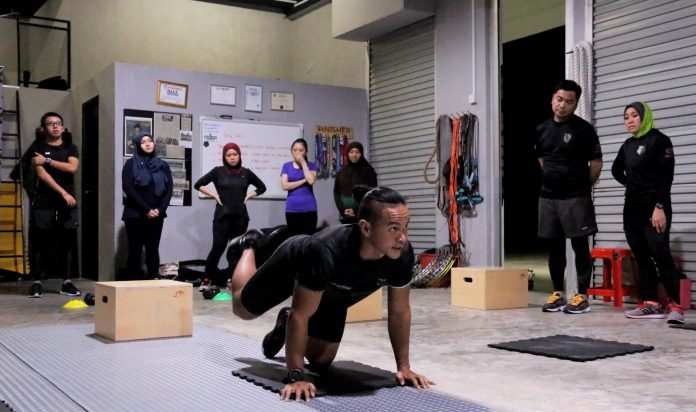In the middle of 2014, Helmi Abdullah sat down to type out his letter resigning from his job as an administrative officer at the National Football Association of Brunei Darussalam (NFABD).
Six months later, he had yet to hand it over. His heart was heavy, body tired and mind awash with doubt. Memories of his second group exercise class – dubbed the bootcamp – in a park, where not one client turned up, came to the fore.
The security of his full-time job was undeniably comforting – he endured six months of unemployment after graduation to secure it. His family questioned the logic behind becoming a full-time personal trainer – after all, he was only 24-years-old; surely there wasn’t a future in just teaching people to exercise?
Within the resistance, however, was another voice, one which drew confidence with every session, every customer he trained. It had him up to the gym doors by 6am – to do personal training before work – and gave him the strength to host bootcamps after he left the office.
“I would save (the money received) from every session and every pay check,” said Helmi. By the start of 2015, he finally took a leap and left his job, and begin to chip away until June 27 last year – where he had saved up $20,000 to open a simple warehouse gym – Helmi Abdullah Fitness (HAF) Sweat Box in Tungku.
“Now people are starting to see personal training and exercise as a viable career and full-time business,” said the 27-year-old. “Back then (five years ago) it was a silly idea to most.”
Adopted into a humble home in Sg Kebun, Kg Ayer by an elderly couple, Helmi’s upbringing was one of modesty where money was hard to come by.
His dad, whose name he does not carry, was a fisherman in his 60s when he took Helmi in but the details surrounding his adoption remain unclear to Helmi. He spent most of his teenage years in Sg Kebun, before the family received a house at the Rimba national housing scheme when he was in sixth form.
Helmi was an athlete throughout his school years, playing mostly football – where he was talented enough to even crack the national futsal team – but his physique was undefined and on the pudgy side, far from the lean, muscular body he’s now built.
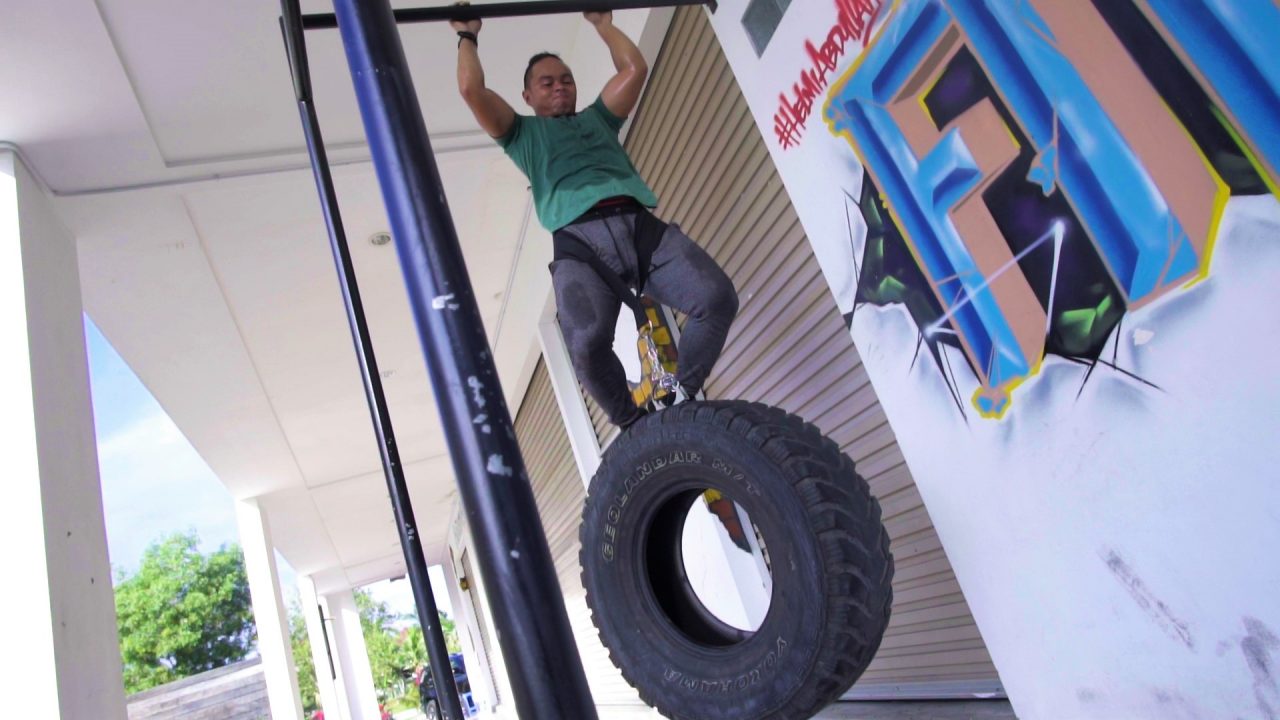
“I thought I was good (at football),” Helmi now jokes. “But I wasn’t good enough to play professionally. There wasn’t any real structure or programme (in the national futsal team) either – we would just form a team months out of a tournament. We (always) won nationally, but when playing against foreign teams we would just be crushed. We didn’t have their teamwork, consistency or discipline.”
The earliest beginnings of HAF would only come a few years later, when Helmi was in Cardiff, Wales as part of a twinning Sports Science degree programme with Universiti Brunei Darussalam, where he was introduced to the concept of high-intensity interval training (HIIT) that’s become the cornerstone of the bootcamp programme.
“I think traditionally when most people think about exercise they’re either thinking about doing a long jog or cardio, and at the other end, pumping their arms and chest with weights like bodybuilders,” said Helmi. “HIIT was something different, and it wasn’t really that popular in Brunei (as it is now today).”
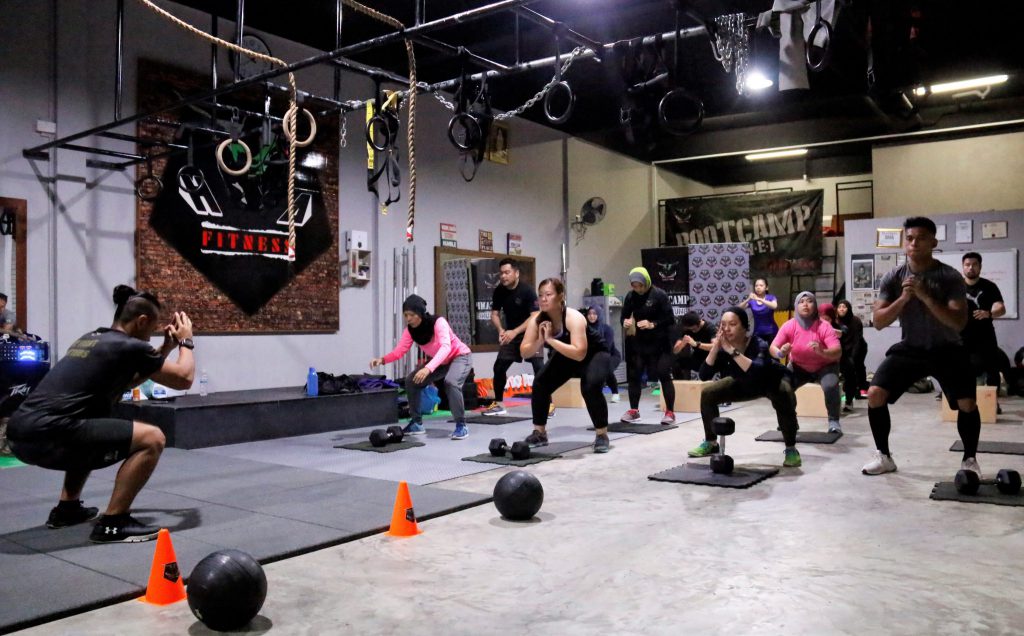
Essentially resistance training with very short rest periods, HIIT primarily makes use of movements – like sprinting, squatting, lunging and pulling – that bring multiple muscle groups into action, either with one’s own bodyweight or with external weights. In the case of bootcamp, the exercises are often alternated or done as a circuit.
“Because your heart rate is high (that compared to a traditional jog) HIIT gets results (burns calories) in a much shorter time frame than traditional (steady state) exercise,” said Helmi. “It also builds muscle and strength.”
HIIT’s surge in popularity in global fitness culture comes from the desirability to be lean, muscular and athletic, moving away from stereotypes of hulking bodybuilders and ultra-thin marathon runners.
“I started implementing HIIT principles into my own training and had great results,” said Helmi. “But there wasn’t really any proper channel for me to pass on the training to others – until I met Jay.”
A Nigerian national keen to open his own gym, Jay met Helmi while working out at a traditional gym, and later recruited him to be a trainer to his facility in Menglait in 2013, called the Classic Bootcamp.
He would train groups with HIIT for nine months, but eventually, he wanted a real test. Could Helmi Abdullah draw customers on his own?

“I just blasted my IG with posts about hosting classes outside the (national) stadium, at Taman Jubilee,” said Helmi, who charged $5 a class – a fee lower than the competition, and one that he maintains to this day. “I remember inviting all my contacts into a WhatsApp group – just to spread the word that I was organizing classes.”
Only his friends – six of them – turned up to the first class, and none showed up at his second.
“It was very discouraging in the beginning,” recalls Helmi. “But it really forced me to rethink my approach. I learned to market my classes better, get repeat customers and understand better what the market is like.”
By intertwining his own story – chronicling his workouts and diet – together with posts for classes under the same account, Helmi eventually managed to build up his client base by generating a large following on Instagram, now nearing 10,000.
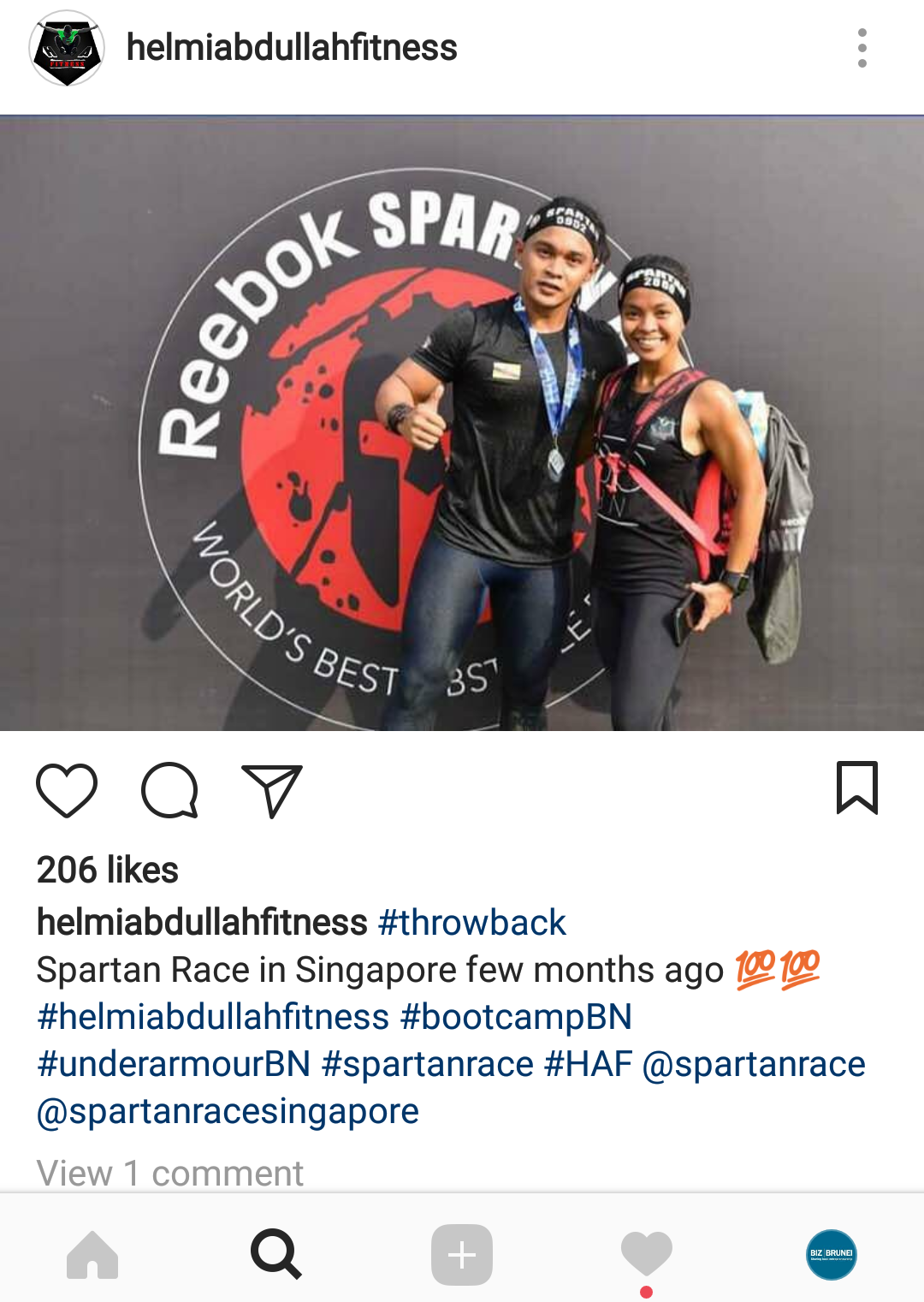
“I choose to use personal branding because it was one of the few advantages I had at the time,” said Helmi. “I didn’t have a gym (initially). I didn’t have much equipment or money to properly advertise either. But I could prove that I got results for myself, and I was confident that I could teach them to do the same. It was something that people could relate to instead of a regular gym that just opens for business, but doesn’t really have a story or much guidance.”
Without investment, financial support or a loan, Helmi has bootstrapped his way to his first facility and trained thousands looking to get in shape. Now the 27-year-old must contend with increased competition – even within the EngHo complex there are already two other exercise spaces.
But his biggest challenge is that he doesn’t have full-time trainers aside from himself and without his immense popularity, HAF – at this point in time – is unlikely to draw much of a crowd without Helmi directly at the helm of each class.
“Right now it’s just me and my girlfriend (conducting classes),” says Helmi, who jokes that he can’t afford to get sick or take an extended break. “We are looking to build a team (of instructors) who are serious about bringing quality (instruction) and can motivate and draw people in.”
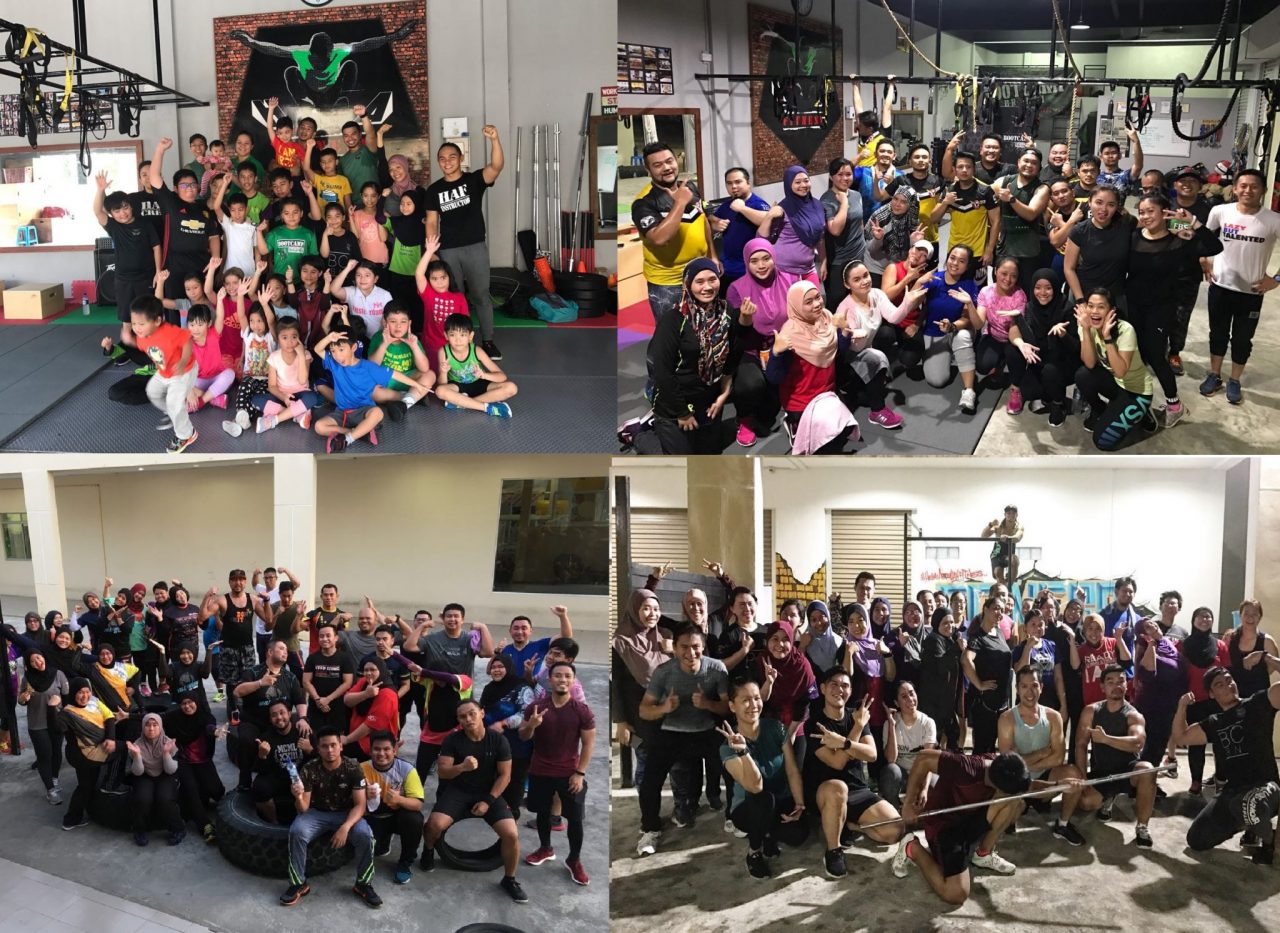
HAF Sweat Box is located on the ground floor, Unit 1, Block B, Eng Ho Complex, Spg 217-5-54, Jalan Gadong, Kg Tungku. Follow @helmiabdullahfitness on Instagram and Facebook to learn more. Walk-in bootcamp classes cost $5 per person and run from Monday to Wednesday and Friday at 7.30pm to 8.30pm. For private classes contact +6737173390.


